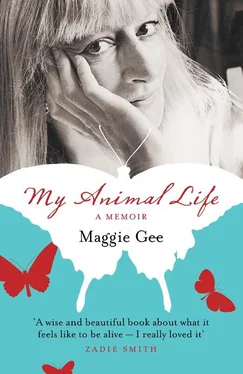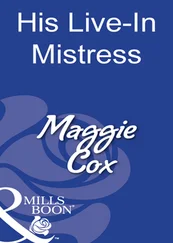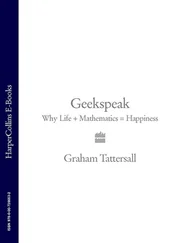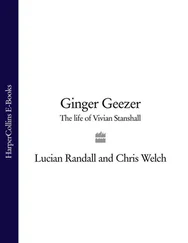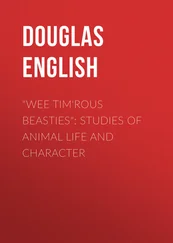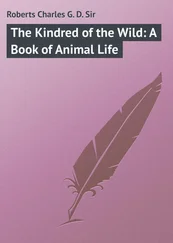Actually not one of the ‘facts’ was true, messy and dangerous though the Suez crisis was. The ‘unidentified aircraft’ were a flight of swans, the British bomber had a mechanical fault, NATO, on balance, preferred not to strike, the world was not about to end.
But I watched the skies, and thought about dying. Watersfield was on the flight-path to Gatwick. For the next few days, every plane that flew over was the one that would bomb us to smithereens. There was a constant ache of fear, which peaked when the hum of a plane began, a nagging presence growing slowly louder. Night-times were the worst, lying in bed and listening to the drone of distant engines.
What did Mr Norris think he was doing? Why did he want to frighten us? What point is there in telling children of evils that they are too small and powerless to do anything about? I sometimes think one reason for the apocalyptic streak that runs through so many of my novels might be the burden of terror Mr Norris gave me, which lingered long after the crisis went away. (But before I blame him for too much, I must ask why terror came to me so easily. I had seen my father trying to fight with my grandfather, rolling up his sleeves; ‘Come out and fight me.’ I had seen my mother crying in the kitchen. So the nerves and networks for fear were established. I did not have that ‘relative amity’.)
Children need hope. Deserve to have hope. The world will muddy it soon enough, so if adults can, they should leave children unclouded. Apocalyptic global warming has not yet happened. Should children be taught it is inevitable?
There were times in my childhood when I had no hope, when my whole mental landscape was choked with fear …
The cause of the original, primal terror was crumbs on a pale carpet. My brother John had dropped crumbs from his plate in Grandpa and Grandma’s front room, which was only used for special occasions. I believe that Uncle Lloyd and Aunty Hilda had come round, with their children Sue and Martyn, for ‘elevenses’, so perhaps there was some degree of competition about the behaviour of the children. Poor John managed to spill his crumbs (it was the only carpeted room in the house; the others had lino, with bright rag rugs that Grandma made; carpets were rare, and mattered). Indulgent to his first and favoured grandson, Pa leaped up and got the carpet-sweeper, a modern innovation, in those days, working on rollers, like a very small, silent vacuum cleaner. But my father had told John to pick the crumbs up. ‘I’ve told him to clean it up himself,’ Dad said. ‘John will pick them up, he has to learn.’ ‘Well this is quick and easy,’ Pa insisted, advancing on my father with the carpet-sweeper. ‘No, he has to learn.’ A full-blown confrontation had come from nothing. ‘I’ll pick them up,’ said John, as eager as everyone was to avoid trouble.
But trouble could not be avoided between these two fathers fighting over one son. Soon Pa had said the unforgivable. Apparently yielding, but in fact planting in my father’s breast an unbearable barb, he said, ‘Well, Vic, we won’t argue. You’re John’s tyrant.’ Though he said the word ‘tyrant’ as though it was neutral, though the form of what he said was yielding the point, there was bitter gall in the content. And my father, maddened like the bull he was, a heavy man compared to his father’s neat, dancing gadfly, groaned, ‘Tyrant? I’m not a tyrant. I’ll … Come outside, Pa. I’ll fight you.’
(And of course, the bitterness came from the irony. Pa himself, in his time, had been a tyrant. He was now indulging his grandson as he had never indulged his son.)
That morning of the year when I was six, I believed that the world was going to end. I remember every detail, half a century later. I watched Grandpa follow Daddy into the Peel Road garden. An unspeakable horror was coming upon us.
But then, through tears, I saw something else: Grandpa was pulling and patting at my father’s arm, not hitting him, trying to calm him down. ‘Don’t take on, Vic, don’t take on.’ The bomb didn’t fall. The war didn’t happen. The men, in the end, did not fight each other, we did not leave for home, as my father threatened, and the battle blew over, with much pain, and Grandma grey-faced, sitting clutching her chest.
Did the adults understand what it meant to us children? It is happening still, in the blaze of white light as the back door opens and they lurch into the garden.
I can only gauge how it weighed on me from my memory of the next time we went to Wolverton. That we were going to go back, after such dreadful events, had oppressed me since my mother had mentioned it. We had been with my father’s school, Watt Close, on a foreign exchange trip to Holland. I loved the holiday; the hotel had a swimming pool with big rubber rings, and chocolate milk. There were wide red and yellow fields of tulips, and a stormy barge trip on the Zuider Zee. But as the days went by, the fear began. We were going to Wolverton as soon as we got back. I prayed that the holiday would never end.
I was incapable of stopping time. I was powerless in the grip of my family. Inexorably, we got to the day when we were off the boat, and on the train in to Euston, the station where we always changed when we were on our way to Grandpa and Grandma’s. The glass of the window, which I pressed my head against to feel the almost pleasant pain of the train jolting, was hard and offered me no help. Raindrops ran in jerky streams down the glass, hanging fire, immobilised, till heavy as tears, then splitting when you least expected it into a slick sprinting delta of water. I tapped the pane, smeared it, desperate to affect them; they carried on endlessly, uninterested. But then I remembered an idea I had had when I was falling asleep in the hotel in Holland. Of course, I could simply stop breathing. If you wanted to die, you could simply stop breathing. I could not stop time, but I could die, quite easily, and never have to go to my grandparents’ again. I tried it, cautiously; it wasn’t too bad. I was sure that by the time I gasped air back in, I was almost dead, it was almost done. My spirits lifted. I was six years old, and cheering myself with thoughts of suicide.
In that way, and at that moment, I would say, looking back, I must have lacked something children need to live. I do not blame my family. They could not help it .
But once again, nothing happened. We went back to Wolverton. Everyone was nervous. Pa and Vic made an effort to get on. We spent more time at Stony Stratford than usual, and in the evenings, sat and surrendered to the soothing authority of ‘Dixon of Dock Green’ on the black-and-white television. My second and third attempts to stop breathing were in any case a great deal harder than my first. It was something, of course, I could not fully rehearse. And I needed not to know that my escape route didn’t work.
What do children need? For life to go on. Somehow the wounds scabbed over, the rawness disappeared. We got over the horror, as families must. Given time, both body and mind can recover, as long as no one has actually gone beyond hearing, beyond reparation, as long as no one has died.
More and more I think that only life matters. That the embryo, though its life will not be perfect, be allowed to cling on. Allowed to be born. That the quarrelling adults don’t murder each other.
I managed to grow up with two living parents. All over the world, children long for that. And having had it, I can’t complain.
I do not leave home
i
I was a very immature seventeen. I was hideously unready to leave home. Socially, sexually, emotionally, practically. I had never had a boyfriend, never had sex, never had a job except six days’ currant picking, with Janet, on a local farm. I had never been out in the evening. I could not drive, sew, cook, shop or clean; could not manage money or social life.
Читать дальше
